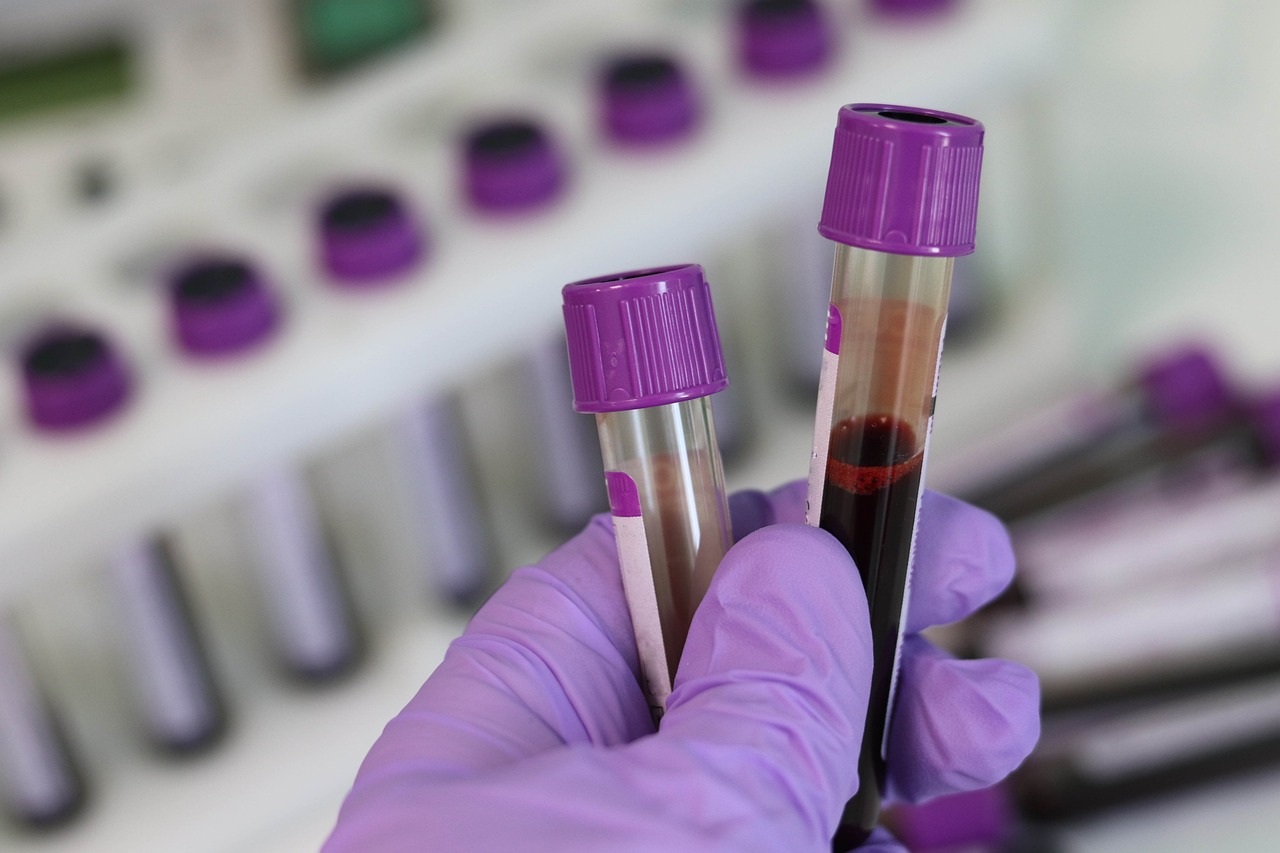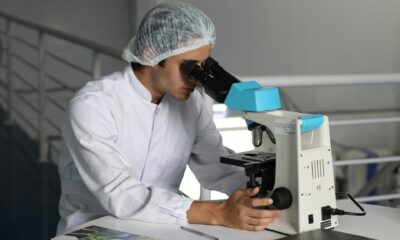Biotech
Sysmex Increases Its Income in Spain by 10% in 2022, up to €40 Million
Sysmex’s investment in Spain in the last three years has exceeded $10.7 million (10 million). During that period, the company has hired a hundred workers. The main lines of business of the company in the country are routine clinical tests: hematology, urinalysis, and flow cytometry. The company’s market share in Spain in this specialty is 32% and the forecast is to reach a market share of 45% in 2025.

Sysmex, the Spanish subsidiary of the Japanese health technology group specialized in in vitro diagnostics has closed the 2022 financial year with a turnover of $43 million (€40 million), which represents a growth of 10% compared to 2021, according to Arndt Knestel, general director of Sysmex in Spain and Portugal.
The company develops, manufactures, and sells equipment, reagents, and software necessary to perform diagnostic tests. Sysmex’s goal is to process more than 50 million tests in Spanish hospitals within two years, according to Knestel.
The company has been operating in Spain since 2010 and currently has more than 120 employees in the country. The company has expanded its activity into new diagnostic fields, among which the area of hematology stands out.
Read more about Sysmex and find the best business news of the day with the Born2iNvets mobile app.
Sysmex employs more than 120 workers in Spain
Historically, the company has dedicated itself, in its area of personalized medicine, to the diagnosis of breast cancer. Now, it also seeks to delve into endometrial, cervical, lung, and prostate cancer, among others. The company helps oncologists learn how to deal with a type of tumor, its stage, and the best treatment for the patient.
In Spain, the group has a sales channel and the business model is pay-per-use. In fact, the company has recently opened regional sales offices on Calle María de Molina in Madrid, beyond the facilities it already has in Sant Just Desvern (Barcelona).
Sysmex’s investment in Spain in the last three years has exceeded $10.7 million (10 million) and, also in that period, the company has hired a hundred workers. The main lines of business of the company in the country are routine clinical tests: hematology, urinalysis, and flow cytometry.
Hematology is a clinical specialty that dedicates its efforts to the study of the etiology, diagnosis, treatment, and prognosis of diseases that affect the production of blood and its components: leukocytes, erythrocytes, hemoglobin, and platelets. Urinalysis is an examination of a urine sample that can help identify medical problems such as kidney failure, diabetes, liver disease, and urinary tract infections.
The company’s market share in Spain in this specialty is 32% and the forecast is to reach a market share of 45% in 2025, according to Knestel. On the other hand, there is flow cytometry, which is a method of determining the number of cells, the percentage of living cells, and certain characteristics (such as size and shape) in a sample of blood, bone marrow, or other tissue.
Arndt Knestel has led the Spanish subsidiary of Sysmex since 2019
Knestel has led Sysmex in Spain since 2019, the year in which he joined the company. Previously, he worked for six years at Zeiss Medical Technology as CEO and for eleven years at Dräger, where he held the position of regional business controller.
The head of Sysmex in Spain has a degree in International Business Administration from the University of Economics and Business in Vienna and a degree in Business Administration from the University of Hagen. Knestel has an Executive Management Program from the St. Gallen Business School.
On a global scale, Sysmex operates in more than 190 countries and regions. In the area of Europe, the Middle East, and Africa (EMEA) the company has more than 2,600 employees and its main business area is hematology.
__
(Featured image by Belova59 via Pixabay)
DISCLAIMER: This article was written by a third party contributor and does not reflect the opinion of Born2Invest, its management, staff or its associates. Please review our disclaimer for more information.
This article may include forward-looking statements. These forward-looking statements generally are identified by the words “believe,” “project,” “estimate,” “become,” “plan,” “will,” and similar expressions. These forward-looking statements involve known and unknown risks as well as uncertainties, including those discussed in the following cautionary statements and elsewhere in this article and on this site. Although the Company may believe that its expectations are based on reasonable assumptions, the actual results that the Company may achieve may differ materially from any forward-looking statements, which reflect the opinions of the management of the Company only as of the date hereof. Additionally, please make sure to read these important disclosures.
First published in PlantaDoce, a third-party contributor translated and adapted the article from the original. In case of discrepancy, the original will prevail.
Although we made reasonable efforts to provide accurate translations, some parts may be incorrect. Born2Invest assumes no responsibility for errors, omissions or ambiguities in the translations provided on this website. Any person or entity relying on translated content does so at their own risk. Born2Invest is not responsible for losses caused by such reliance on the accuracy or reliability of translated information. If you wish to report an error or inaccuracy in the translation, we encourage you to contact us.

-

 Business7 days ago
Business7 days agoTopRanked.io Weekly Affiliate Digest: What’s Hot in Affiliate Marketing [Best Technology Affiliate Programs]
-

 Fintech2 weeks ago
Fintech2 weeks agoFintech Alliances and AI Expand Small-Business Lending Worldwide
-

 Business2 days ago
Business2 days ago2.5 Billion People Watch Quiz Shows Every Day. Masters of Trivia (MOT) Is Letting Them Compete
-

 Crypto1 week ago
Crypto1 week agoBitcoin Steady Near $68K as ETF Outflows and Institutional Moves Shape Crypto Markets

























